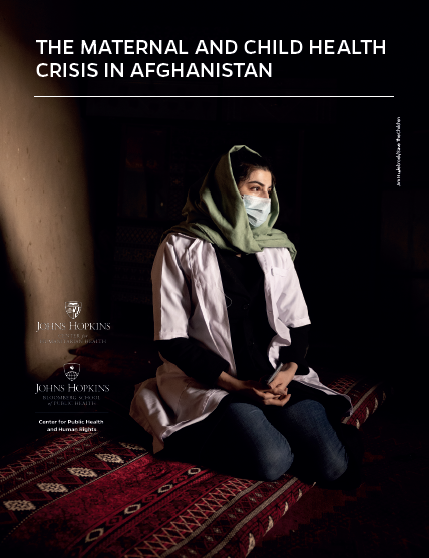The Maternal and Child Health Crisis in Afghanistan
Principal Investigator: Leonard Rubenstein
Co-investigators: Nancy Glass (School of Nursing), Gilbert Burnham (International Health), Hannah Tappis (International Health) Rabia Jalazai (School of Nursing) and collaborators in Afghanistan who cannot be named
Date of project: 2022
In the wake of the Taliban takeover of Afghanistan in August 2021, the Taliban began to impose severe restrictions on women’s education, livelihoods, and freedom of movement. At the same, time, Western donors imposed additional sanctions on the Taliban, hamstrung Afghanistan’s central bank, and ended the support for the government-run system of primary and hospital care that had dramatically improved the life expectancy and health of people in Afghanistan. Maternal mortality had fallen dramatically.
Donors including the United States, the World Bank, and the UN, along with the International Committee of the Red Cross provided emergency stopgap funding for salaries of health providers. Nevertheless, in surveys with more than 100 health care providers and interviews with many of them, we found that conditions for those working in maternal and child health severely deteriorated, including lack of regular salary and inability to obtain essential medical supplies and medications for their patients. They also reported regular harassment from the Taliban, and sometimes violence, in going to and from work, usually for lack of a male escort. Many of the health providers perceived deterioration in the quality of care offered to patients and an increase in maternal and child mortality.

